
PowerPoint has long been perceived as a simple presentation tool, often associated with static slides and basic bullet points. But what if I told you that PowerPoint animations unlock a whole new world of creative possibilities? Whether you are a business professional, educator, or creative enthusiast, mastering PowerPoint animations can transform your presentations into dynamic, engaging experiences that captivate your audience.
In this comprehensive guide, inspired by the insights from One Skill PPT, we’ll explore ten amazing things you can create using PowerPoint animations. From animated slide designs to interactive galleries and even explainer videos, we’ll dive into practical examples, tips, and resources to help you elevate your PowerPoint skills.
Optimizing for the keyphrase: Throughout this article, you’ll discover how PowerPoint animations can be leveraged to enhance storytelling, engage viewers, and deliver messages with impact. Let’s jump right in!
Table of Contents
- 1. Animated Slide Designs
- 2. Photo and Video Animations
- 3. Impressive Text Animations
- 4. Animated Charts
- 5. Animated Illustrations
- 6. Video Intros
- 7. Interactive Presentations
- 8. Dynamic Navigation
- 9. Explainer Videos
- 10. 3D Model Animations
- FAQ
- Conclusion
1. Animated Slide Designs
One of the simplest yet most effective ways to make your presentation stand out is by animating your slides themselves. Often, people think PowerPoint presentations are boring, but with the right approach, you can create truly captivating slide designs.
PowerPoint offers two main ways to animate slides:
- Slide Transitions: These are animations that occur when moving from one slide to another. Transitions like fade, push, morph, and zoom can add polish and flow to your presentation.
- Animations on Individual Elements: Entrance, emphasis, and exit animations can be applied to text, shapes, images, and other slide objects to control how they appear, highlight, or disappear.
By combining these tools, you can craft animated slide designs that maintain your audience’s interest and reinforce your message.

Tips for Animated Slide Designs
- Use subtle slide transitions to keep the flow smooth without distracting your audience.
- Animate key points or images to draw attention strategically.
- Keep animations consistent in style and timing for a professional look.
- Test animations in slideshow mode to ensure they work as intended.
2. Photo and Video Animations
Photos and videos are powerful storytelling tools, and animating them in PowerPoint can further enhance their impact. Whether you want simple fade-ins or advanced effects like zoom or pan, PowerPoint provides flexible options to animate multimedia elements.
These animations can:
- Help emphasize parts of your story visually.
- Make static images feel more dynamic.
- Create engaging video intros or transitions.
One Skill PPT offers detailed tutorials and examples of photo and video animations, showing you how to create effects like infinite zoom, animated building posters, and circular morph transitions.
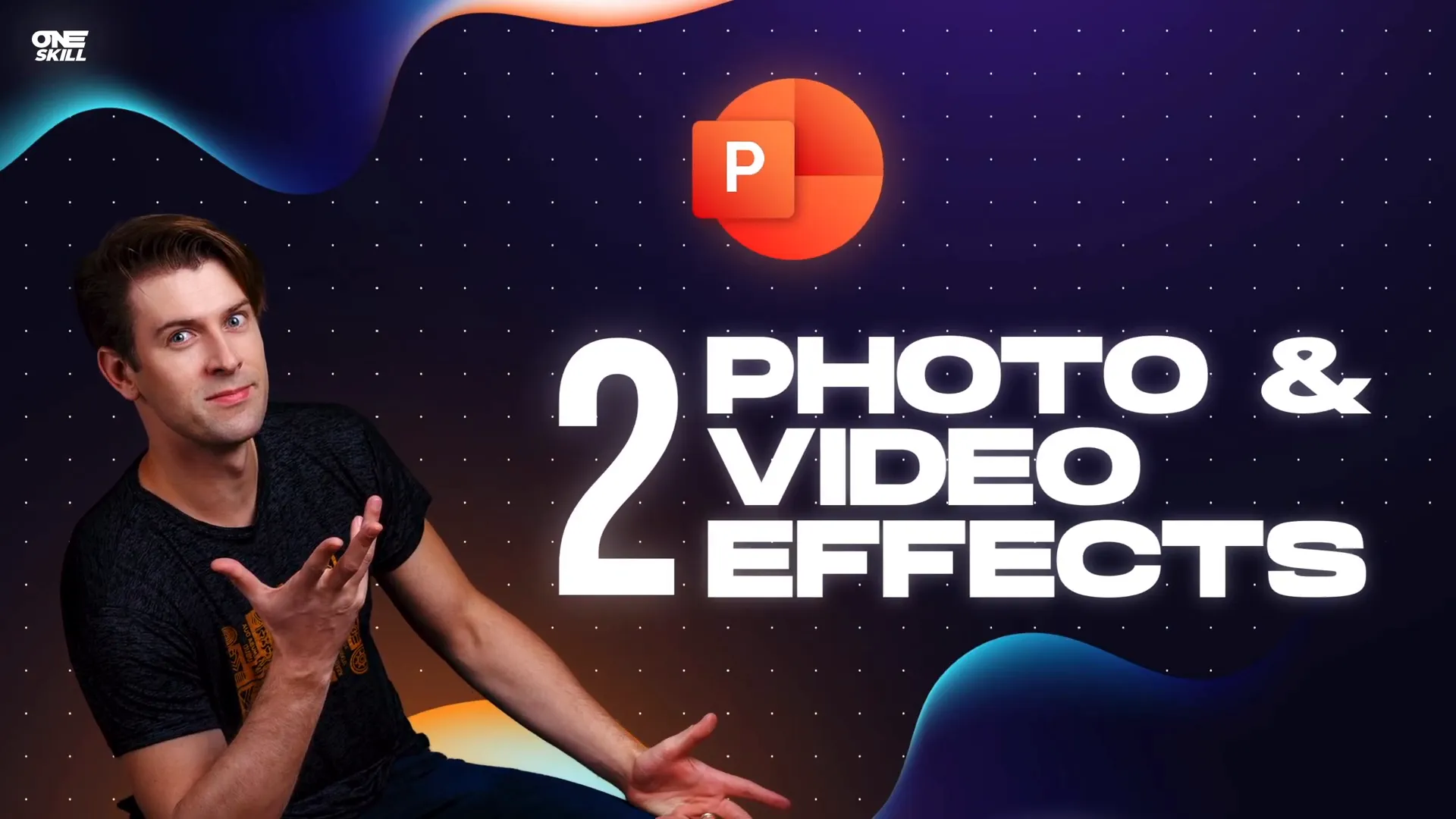
Photo and Video Animation Ideas
| Animation Type | Description | Use Case |
|---|---|---|
| Pen Animation | Simulates drawing or writing on the slide. | Explainers, tutorials, storytelling. |
| TV Animation | Mimics a television screen turning on or off. | Video intros, nostalgic effects. |
| Infinite Zoom | Creates a continuous zoom effect on images or videos. | Highlighting details or creating dramatic effects. |
3. Impressive Text Animations
Text is often the core of your message, but it doesn’t have to be boring. PowerPoint animations allow you to bring your text to life with effects that grab attention and emphasize key points.
Some popular text animation techniques include:
- Entrance Effects: Make text appear dynamically, such as flying in, fading, or zooming.
- Emphasis Effects: Highlight text through pulsing, color change, or spinning.
- Exit Effects: Smoothly remove text from the slide to maintain flow.
With these tools, you can create rolling 3D text, golden text animations, folding text effects, and more that make your slides visually appealing and memorable.
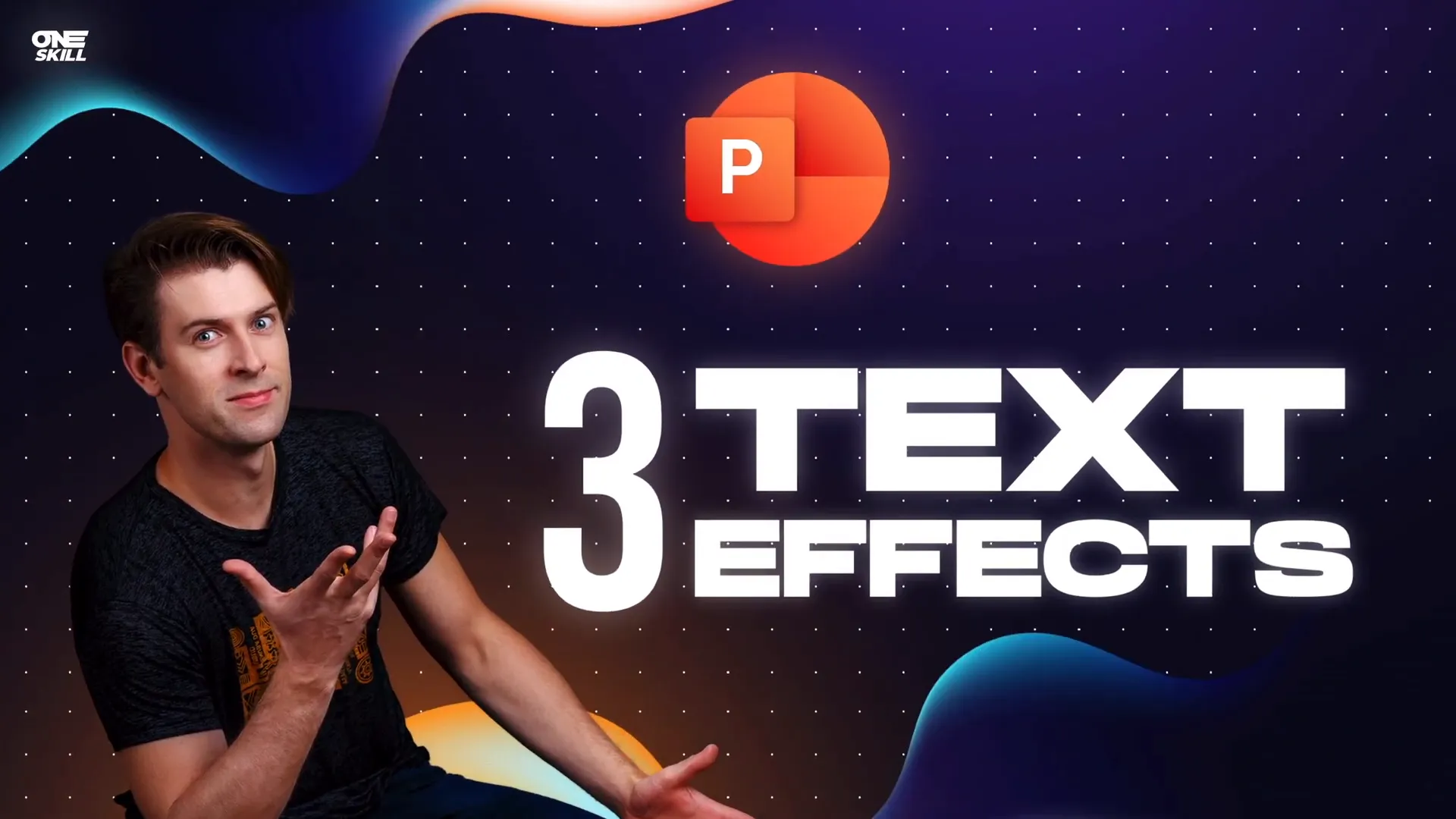
Best Practices for Text Animations
- Keep animations purposeful and aligned with your message.
- Avoid overusing animations to prevent distraction.
- Use consistent timing and effects for a cohesive look.
- Test readability after animation to ensure clarity.
4. Animated Charts
Data visualization is a critical part of many presentations. Animated charts can help you present complex information in a way that is both engaging and easy to understand.
PowerPoint allows you to animate charts by:
- Animating data series or individual data points sequentially.
- Using emphasis animations to highlight key figures.
- Customizing entry and exit animations to tell a data story step-by-step.
Going the extra mile to create custom animations for your charts can impress your audience and make your data more compelling.
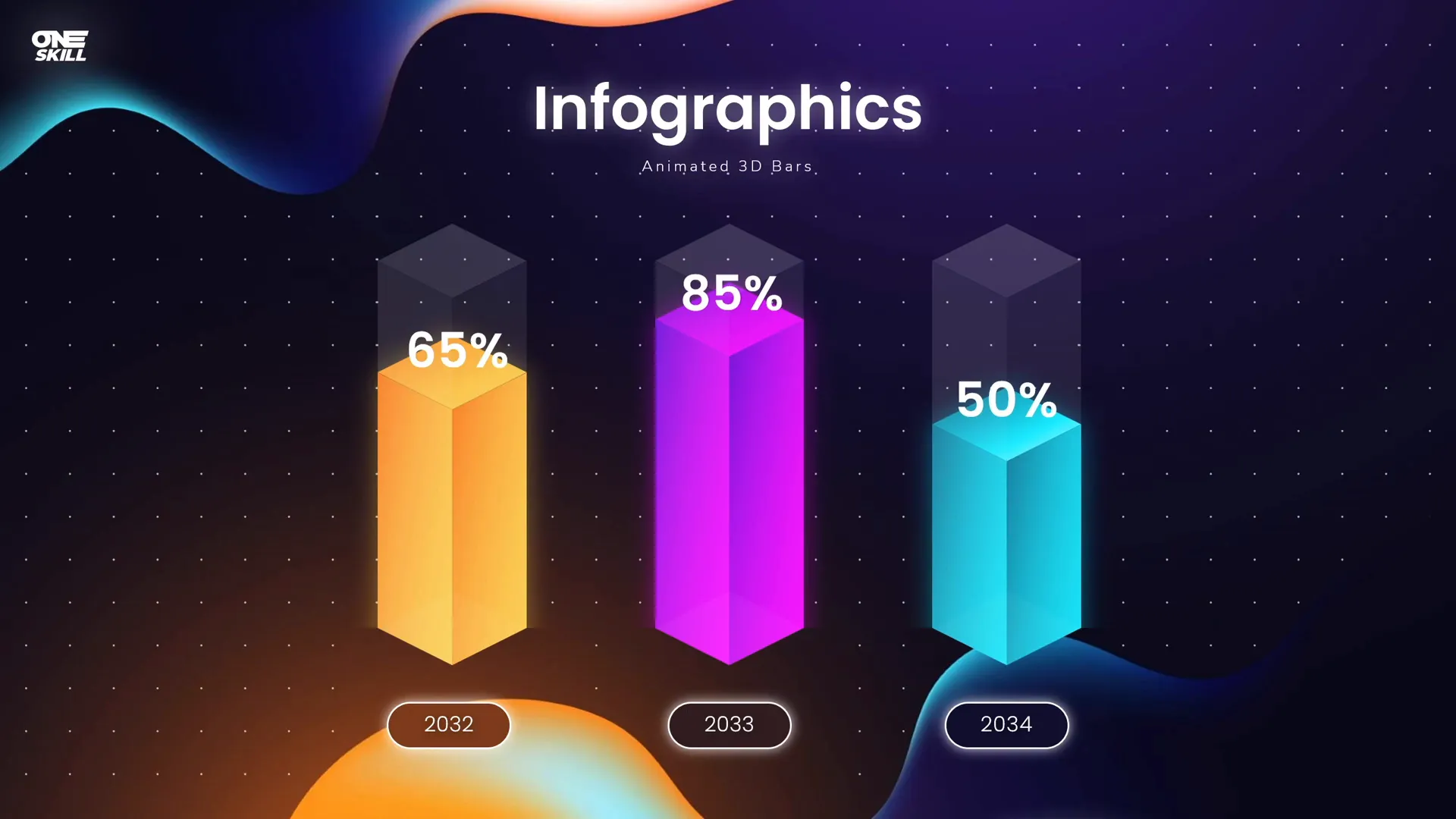
Tips for Animated Charts
- Animate charts in logical sequences to guide the audience’s attention.
- Use simple animations to avoid overwhelming the viewer.
- Label data clearly to maintain clarity during animations.
5. Animated Illustrations
Animated illustrations bring a unique charm to your presentation. They can make your slides feel lively and visually rich, offering an alternative to standard images and icons.
PowerPoint supports animating illustrations by:
- Breaking down complex illustrations into parts and animating each element.
- Using motion paths, fades, and entrance/exit effects to simulate movement.
- Creating clickable and interactive animations for enhanced engagement.
Examples include animated trains, cars, or other thematic illustrations that add personality and storytelling depth to your slides.

How to Animate Illustrations Effectively
- Group illustration parts logically to control animation order.
- Use animation triggers for interactivity if desired.
- Combine animations with sounds or transitions for immersive effects.
6. Video Intros
Did you know you can create professional intros for your videos or presentations directly in PowerPoint? These intros can include animated logos, moving buttons, and call-to-actions like “Subscribe” animations.
Creating video intros in PowerPoint has several advantages:
- Easy customization with familiar tools.
- Seamless integration into presentations or video projects.
- Cost-effective alternative to specialized video software.
For example, you can create a subscribe animation featuring a moving mouse cursor and animated subscribe button to encourage viewer engagement.

Steps to Create Video Intros in PowerPoint
- Design your logo or intro graphics using shapes and images.
- Apply entrance and motion path animations to elements.
- Add timing and triggers for smooth flow.
- Export the slide or presentation as a video file.
7. Interactive Presentations
One of the most powerful features of PowerPoint animations is the ability to make your presentations interactive. Using animation triggers, you can control when animations occur based on user actions like clicks or mouse hovers.
Interactive animations open up creative possibilities such as:
- Clickable photo galleries that slide horizontally.
- Hover animations that highlight or zoom elements.
- Interactive quizzes or menus that respond to user input.
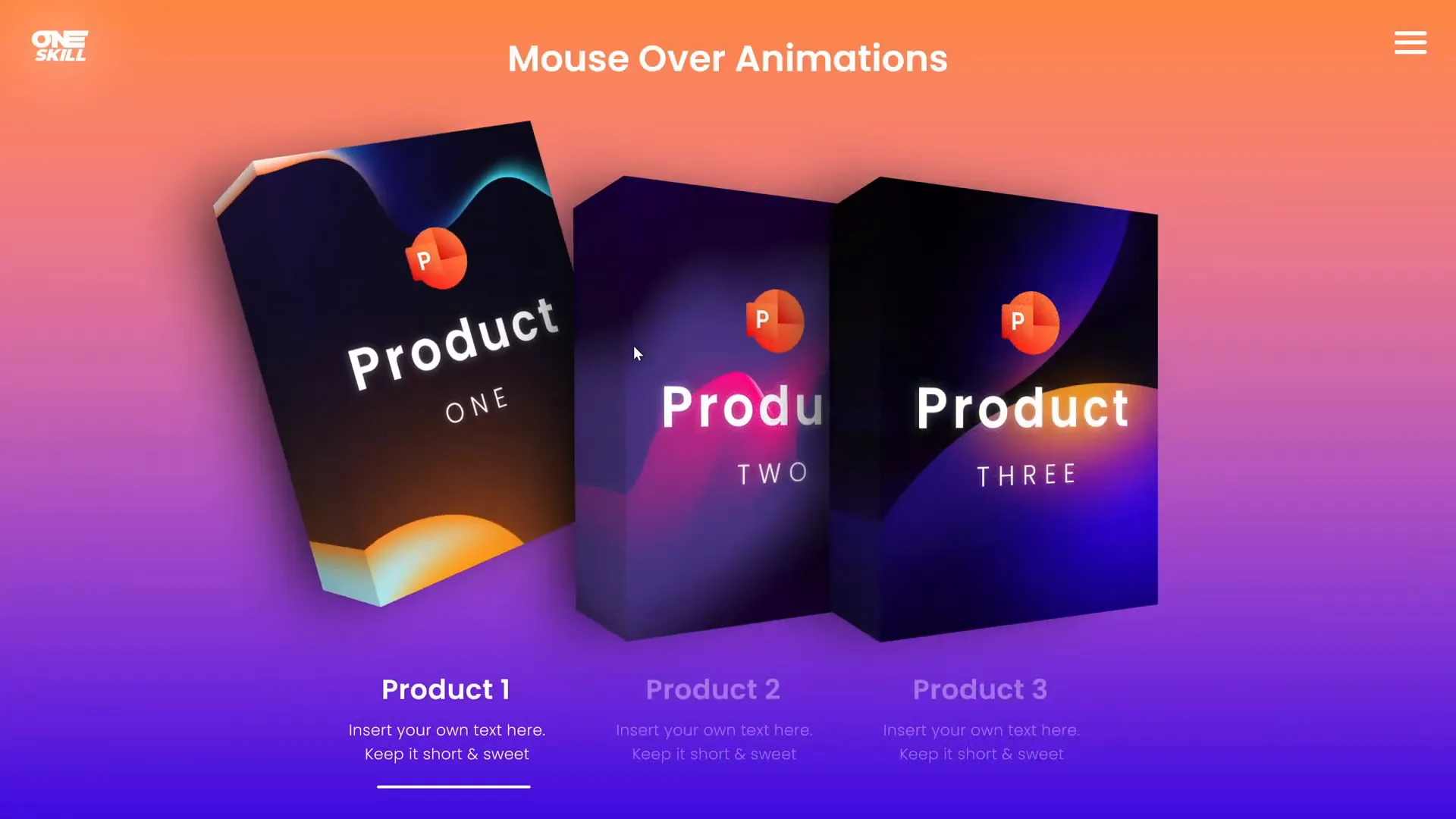
How to Use Animation Triggers for Interactivity
- Select the object to animate.
- Apply an animation effect.
- In the Animation Pane, set a trigger such as “Start effect on click of” a specific object.
- Test the interactivity in slideshow mode.
8. Dynamic Navigation
PowerPoint animations can help you break out of the traditional linear slide flow. With dynamic navigation, you can create menus or navigation systems that allow you to jump freely between slides.
This flexibility helps:
- Customize your presentation flow based on audience needs.
- Make your pitch decks or training materials more user-friendly.
- Add visual flair with spinning gears, circular menus, or animated buttons.
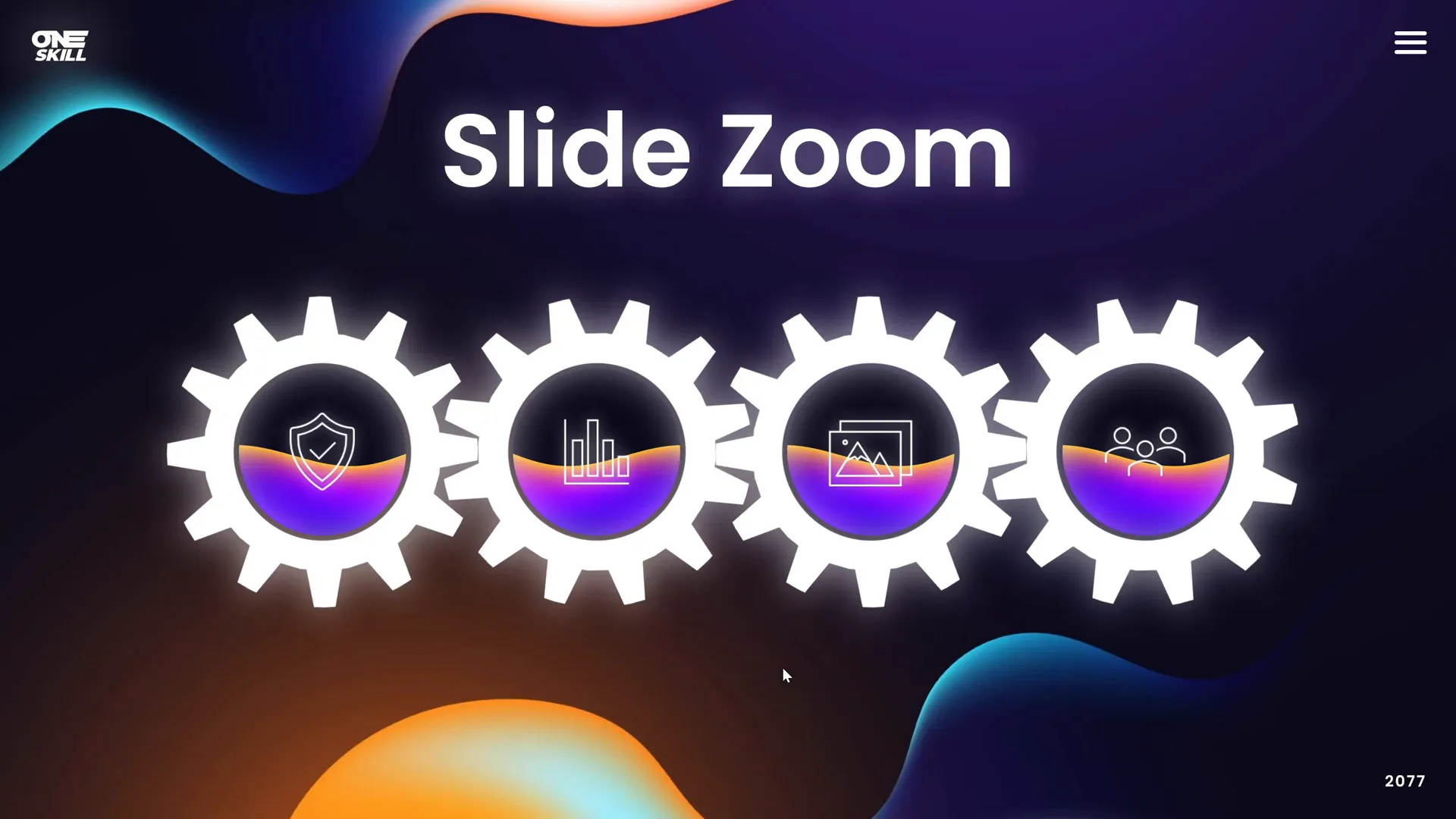
Examples of Dynamic Navigation
- Spinning slide zoom gears.
- Animated circular menu with clickable sections.
- Pitch deck menu with animated transitions.
9. Explainer Videos
Explainer videos are a fantastic way to convey complex information simply and effectively. PowerPoint animations enable you to create realistic whiteboard-style explainer videos without specialized software.
These videos typically include:
- Hand-drawn style animations.
- Text and image animations that illustrate concepts.
- Voiceover synchronization (added outside PowerPoint).
One Skill PPT showcases explainer videos on topics like audiobooks, all created entirely in PowerPoint.

Tips for Creating Explainer Videos in PowerPoint
- Break down your script into visual steps.
- Use motion paths and wipes to simulate drawing.
- Keep animations smooth and paced for viewer comprehension.
- Export slides as video and add voiceovers in video editing software.
10. 3D Model Animations
PowerPoint supports 3D models and their animations, allowing you to add depth and realism to your presentations. You can use 3D models provided within PowerPoint or import your own.
With 3D animations, you can:
- Rotate models in 3D space.
- Animate model parts with entrance, emphasis, or motion path effects.
- Create futuristic or technical presentations with high visual impact.
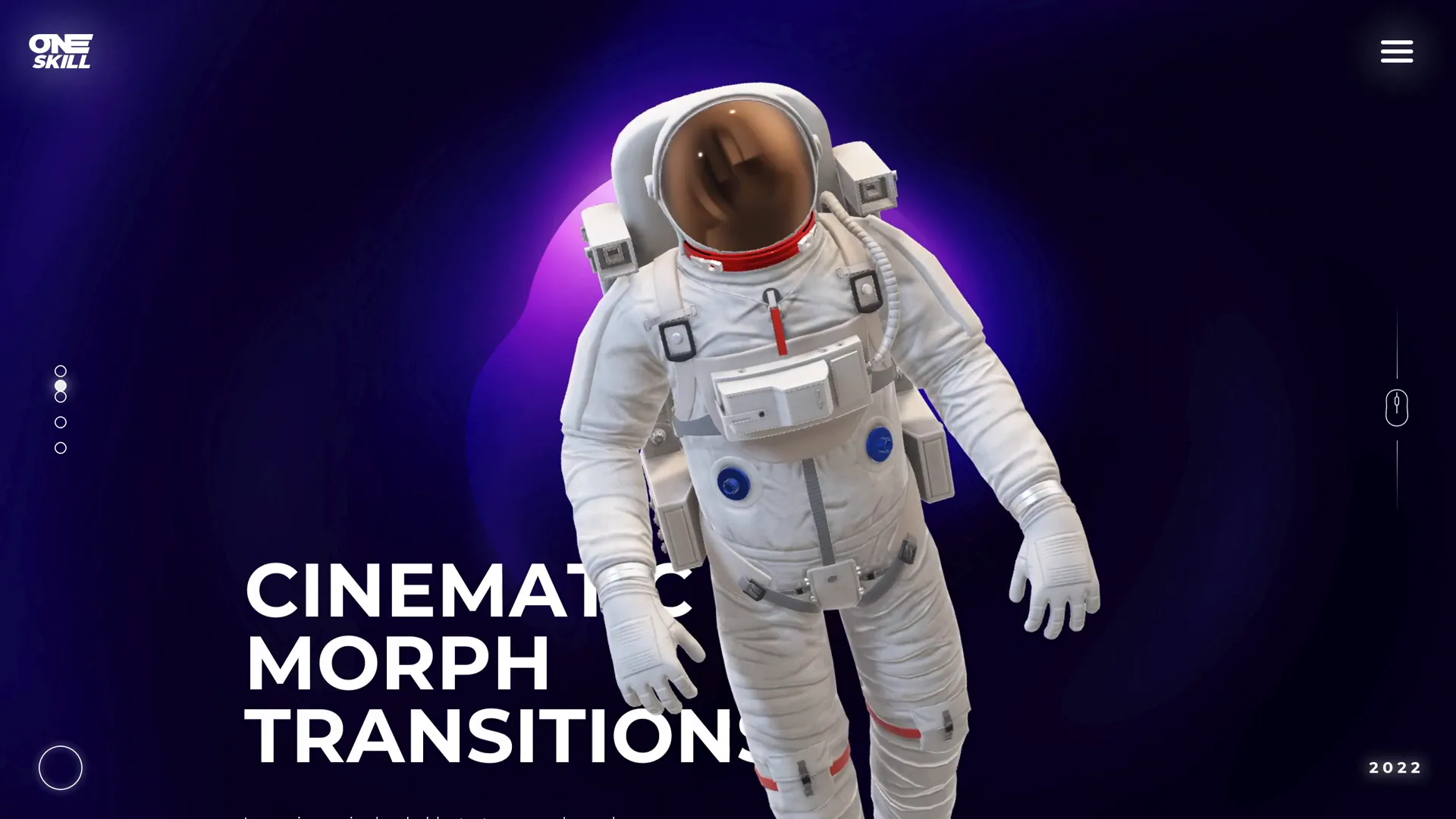
How to Use 3D Models in PowerPoint
- Go to the Insert tab and select 3D Models.
- Choose from the online library or upload your own model.
- Resize and position the model on your slide.
- Apply animations from the Animation Pane.
- Preview and adjust timing for smooth effects.
Frequently Asked Questions about PowerPoint Animations
Q1: Can beginners create advanced animations in PowerPoint?
Absolutely! PowerPoint’s animation tools are designed to be accessible. While some animations require practice, many tutorials and courses, like the PowerPoint Animation Mastery course by One Skill PPT, guide users step-by-step to build skills from basic to advanced levels.
Q2: How can I make my animations look professional and not distracting?
Focus on purpose-driven animations that support your message. Avoid overusing effects, keep timings consistent, and always test your animations in slideshow mode. Simplicity and clarity are key.
Q3: Can I export my animated PowerPoint as a video?
Yes, PowerPoint allows you to export presentations as video files, preserving animations and timing. This is useful for sharing your presentation online or embedding in other media.
Q4: How do interactive animations work in PowerPoint?
Interactive animations use triggers tied to user actions like clicks or mouse hovers. This allows certain animations to start only when specific objects are clicked or hovered over, creating a responsive experience.
Q5: Are 3D models supported on all versions of PowerPoint?
3D model support is available in recent versions of PowerPoint (Office 365 and PowerPoint 2019 onwards). Older versions may not support this feature.
Conclusion
The world of PowerPoint animations is vast and exciting, offering far more than the simple transitions and effects many users expect. From animated slide designs and photo animations to interactive galleries, explainer videos, and 3D models, PowerPoint empowers you to create engaging, professional, and visually stunning presentations.
Whether you’re looking to impress clients, educate students, or simply add flair to your talks, mastering PowerPoint animations will elevate your storytelling and audience engagement. For those eager to dive deeper, the PowerPoint Animation Mastery course by One Skill PPT is a fantastic resource that gradually teaches all animation secrets until you become a PowerPoint animation pro.
The time has come to unleash your creativity and create all the PowerPoint animations you’ve ever dreamed of. Let’s go!
For more tutorials and inspiration, visit the One Skill PPT YouTube channel.








